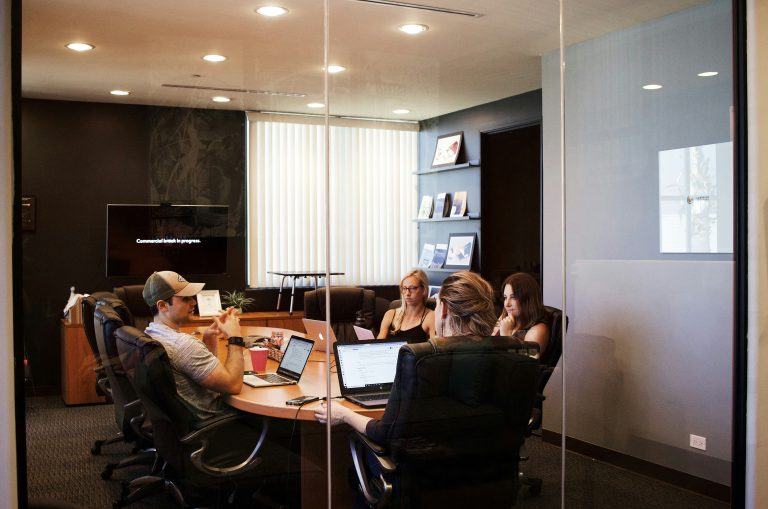If we were to rank some of the most stressful roles in an office from 1-10, HR professionals would definitely make it in the top three.
Theirs is one of the most demanding positions in any company, from managing employee relations, recruitment, and compliance to taking care of workplace conflicts; HRs do it all.
One of the most important requirements for an HR professional is to maintain a calm demeanor at all times. No matter how out of control the situation they’re dealing with is and how overwhelmed they are from juggling multiple responsibilities. It is imperative that HRs combat stress and stay resilient. How, you ask? Through guided meditation.
Today, we’ll explore how to reduce stress with guided meditation for HR on our insightful guide. We’ll include some practical tips HRs can use in their daily routines.
Why is Stress Management So Crucial for HR?
HR professionals are often known as the backbone of any organization’s workforce. They manage sensitive and complex matters like the well-being of employees, organizational changes, and, of course, their favorite (depending on who you ask), conflict resolution.
These responsibilities can take quite a toll on mental health, leading to burnout, anxiety, and reduced productivity.
Below, we’re going to look at some of the key challenges HR professionals face in the workplace. Whether it’s dealing with Angela’s hysterics about her co-worker’s choice of perfume or spotting glaring inconsistencies on the payroll, we’ll cover them all.
1. Intense Emotional Demands from Handling Employee Issues
HR professionals often deal with sensitive and emotionally charged situations, whether it’s dealing with someone facing common issues of absenteeism or serious issues such as racial bias in the workplace.
Constantly resolving workplace conflicts like the one we mentioned above, addressing complaints of harassment and bias, and supporting employees through their personal struggles can take a toll on HR.
These interactions can be emotionally draining, to say the least, but HR needs to maintain empathy and professionalism throughout, even during tough conversations.
The emotional toll can lead to something called compassion fatigue, which is the negative cost of caring, simply put. And, of course, burnout, making stress management crucial to sustain their well-being, effectiveness, and professionalism while dealing with heated and high-tension situations.
2. Navigating Complex Compliance and Legal Matters
A critical responsibility for HR professionals is making sure that an organization remains compliant with labor laws and regulations. This means staying on top of ever-changing laws, managing and organizing employee documentation, and handling audits or legal disputes.
There is immense pressure on HRs to prevent compliance issues and avoid costly penalties that can cause significant stress and cost for the entire company.
HR teams must be able to effectively balance legal needs with fair treatment of employees, which adds another layer of complexity and, you guessed it, a whole lot of stress to their work.
3. Managing Constant Communication and Interruptions
HR professionals are often the go-to contact for employees and management alike, leading to frequent interruptions and delays throughout their day.
Whether it’s handling inquiries, taking interviews, overseeing the hiring process, or resolving immediate issues, the constant flow of communication can obviously disrupt their focus and productivity. HRs are already inundated with tons of tasks, especially if there’s a single professional in charge.
This constant availability can make it pretty challenging to manage their own tasks and adds to a feeling of being perpetually overwhelmed and burnt out.
4. Balancing Company Goals with Employee Satisfaction
HR must strike the right balance between achieving organizational goals and ensuring employee well-being in the workplace. They are responsible for implementing policies and regulations that align with the company’s objectives while ensuring employees’ needs and concerns are considered.
Striking this balance can be challenging, as HR may face resistance and pushback from both employees and management.
This dual responsibility creates stress and tension and elevates stress levels, especially when trying to satisfy both sides without compromising the organization’s values.
HR professionals must be able to find a middle ground while keeping their own stress levels at a low and management and employee content at a high.
What is Guided Meditation?
Guided meditation means meditating with a teacher or audio guide leading you through a series of calming exercises, often using visualization and images, royalty-free meditation music for commercial use, breathing techniques, and mindfulness practices.
Unlike traditional meditation, where you must sit down and maintain a quiet and sequestered environment, guided meditation requires no prior experience. This can also be done while working, making it accessible to all, including busy HR professionals who operate under high stress.
With guided meditation, whether listening to an audio or watching a video, you can instantly calm your nerves when daily HR hassles and needs shoot them.
Below, we’ll look at a few benefits of guided meditation for HR teams.
Benefits of Guided Meditation for HR Teams
Guided meditation can be a very powerful tool for HR professionals who want to manage workplace stress and improve overall well-being. One of its main benefits is its ability to reduce anxiety and stress by encouraging mindfulness, focus, and relaxation.
When HR professionals can take a few moments each day to focus on their breathing and let go of negative and obsessive thoughts, they can lower their cortisol levels, the hormone responsible for stress.
This mental break helps them stay calm and collected even in the midst of challenging situations, ultimately improving their interactions and communication with employees and management.
Besides reducing stress, guided meditation increases focus and improves decision-making. HR professionals often have to make critical decisions quickly, and meditation clears the mental clutter and improves concentration.
Body scanning and visualization are a few effective techniques that train the mind to stay present and focused, making it easier to prioritize key tasks and solve complex problems faster.
Another great benefit of guided meditation is how it affects emotional intelligence. Meditation promotes self-awareness, helping practitioners acknowledge their emotions without judgment.
This heightened awareness better regulates emotions, letting HR professionals respond and react calmly to stressful situations rather than impulsively.
Guided meditation also promotes better sleep and relaxation. When HRs are well-rested, they’re more alert, patient, and capable of dealing with the demands of their job. Beyond sleep, regular meditation practice can reduce anxiety and depression symptoms, improve mood, increase energy levels, and elevate mood.
How HR Professionals Can Incorporate Guided Meditation into Their Routine
When you’re thinking of implementing guided meditation, you might think you must shift your schedule and make time and space for it.
But the great thing about guided meditation these days is that it doesn’t require a complete overhaul of your daily routine. Here are simple ways to introduce guided meditation into your workday.
We hope that with these tips on hand, you’ll be able to reduce workplace stress and maintain your reputation as one of the best HR professionals out there.
1. Start With Short Sessions
Start with a 5-10 minute guided meditation session, and it doesn’t have to be super long. Apps like Headspace, Calm, and Insight Timer offer quick meditations designed for workplace stress.
Schedule a brief meditation break during your lunch hour or right before a stressful meeting or hire interviews.
2. Create A Calm Workplace
Designate a quiet area in the office where HRs can practice meditation without interruptions or disturbances. Consider adding calming elements like plants, soft lighting, and aromatherapy to truly elevate the experience.
Encourage HR team members to personalize and decorate their space with items that bring them peace and calm. These can be pictures of their families, the beach, their favorite vacation destination, or just a puppy.
3. Use Guided Meditation for Conflict Resolution
Before handling workplace conflicts or having difficult conversations, take a few minutes to take part in a guided meditation focused on emotional regulation, resilience, and empathy.
Suggest and encourage meditation to employees who are part of conflicts to help them approach discussions with a clear and calm state of mind.
4. Host Regular Mindfulness Sessions
Arrange weekly or bi-weekly mindfulness sessions for the HR team. This not only builds a supportive environment but also strengthens resilience and emotional intelligence within the team.
Invite a meditation coach or use recorded sessions from reliable meditation platforms, or use the apps we’ve mentioned above.
Guided Meditation Techniques for HR Professionals
Some important guided meditation techniques for HR professionals are listed below.
- Body Scan Meditations
- Breathing Exercises
- Loving-Kindness Meditation
- Visualization Meditation
Conclusion
And there you have it! We hope you enjoyed our piece on guided meditation for reducing stress for HR professionals. Stress can heavily affect HRs and hamper their productivity, and guided meditation can significantly improve their ability to handle all the pressures of an HR professional.
Try out the tips and tricks in our guide and transform the work culture at your office for the better.
Guest writer.

























